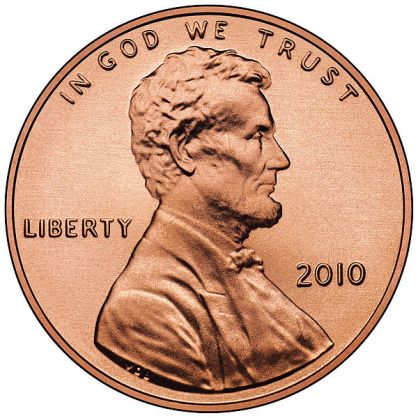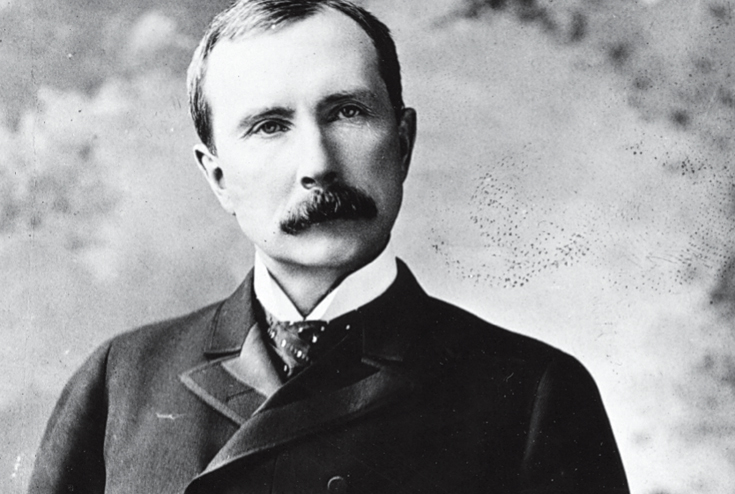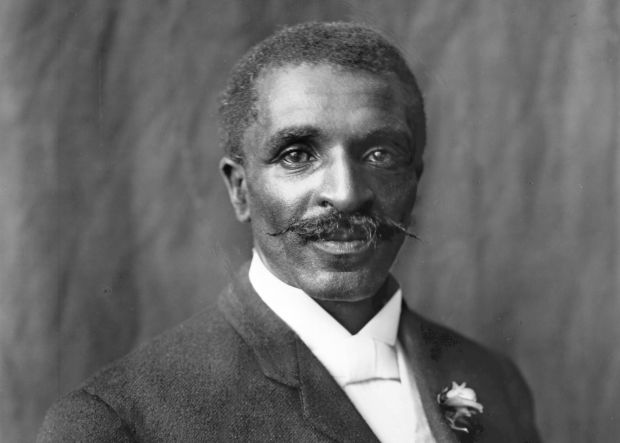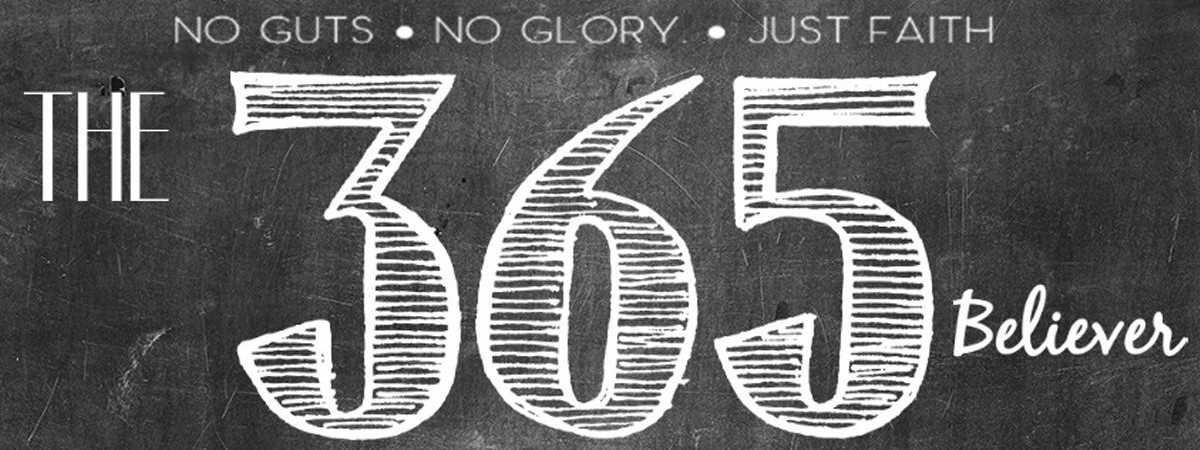 Today’s principle focus is on Wisdom and the role it plays in finances
Today’s principle focus is on Wisdom and the role it plays in finances
Today’s Positive Affirmation and Encouraging Words to Live By: (Repeat this statement as you go about your day as you come against opportunities to spend.)
“I spend money on things that add value and enrich life, I never overspend.”
Scripture References: Proverbs 31:13
Think on this: While the scripture states “She selects wool and flax and works with eager hands.” It could just as easily for today’s modern family needs read: “The wise person selects items that they can afford, and are creative with their selections: happily using their imagination and ability to fulfill their family’s needs.”
Well done, good and faithful servant; you were faithful over a few things, I will make you ruler over many things. Enter into the joy of your Lord. —Matthew 25:21
ON A SCALE OF 1-10… (10 being the highest most confident in your ability to serve) Write down on a piece of paper where you see yourself in the area of financial wisdom. How wise do you feel you are?
We do not need to ‘avoid ’the unexpected expenses of life, what we need to learn to be able to do is successfully put ourselves in the position of being able to ‘afford’ them.
On day four of our journey, we are going to focus on financial wisdom and prioritized spending. As you apply in your life the correct type of spending habits, you will find that you will have extra cash in the bank when emergencies rise.
Today, we will begin thinking and praying for the wisdom we need in order to learn how we can begin to run to God and to our own bank accounts in order to pay for unexpected bills rather than consistently going to the bank and borrowing money to get our needs met.
We do not need to ‘avoid’ unexpected expenses, what we need to be able to do is successfully put ourselves in the position of being able to ‘afford’ them. How do we ensure ahead of time we can afford unexpected expenses? We set up a system of prioritized spending and follow some key activities that will compound when applied, and give us ample room for life’s little errors.
 PRIORITIZED SPENDING
PRIORITIZED SPENDING
Questions to ask yourself when accessing and prioritizing your spending:
- Where has all my money been going? Where do I want my money to go?
Discovering the truths to where your money is going can be very revealing. Taking the time to learn you might be spending hundreds of dollars eating out, or buying furniture, or talking on the phone is sobering. What I would encourage you to do is not change anything in your spending right away. Instead, record every dollar spent in a notepad for a week and see what you are spending money on. This observance of your spending will direct you to exactly where your money is going, and why you haven’t had extra money for “rainy” days.
- How much is my take home pay, exactly?
Learning how to live on what you make is critical. Sometimes it might mean moving, or selling an extra car, exchanging a leased car of high-value for a paid-for car of lower value. It should be each individual’s personal goal to learn how to live on what you make, including fixed expenses. A major key in the battle over spending and finances is not overspending.
- What things do I know I have to pay for this month/year/today?
Learn what your fixed expenses are. Water, electricity, gardening, training or education, any expenses that you know are going to reoccur every month. I like to use a Microsoft excel sheet or a sheet on Google drive to put the list together. I create separate columns; the name of the bill, it’s description, the account number, the amount due, the amount paid, when the bill is due, and how much I paid upon pay date. I also include whether the bill is paid online, by mail, or in person. This gives us an idea of what is left. To give you an idea of our fixed expenses, we also include groceries and gas as fixed expenses.
- What does the calendar of events look like for this month/year/today? Has God indicated for me a trip, or occasion that will cost me extra?
If there is any money left over, after all the fixed expenses are paid, it is a good thing to take a look at your calendar and find out what non-regular occurring expenses you might have in a particular month. Is there a birthday, a reunion, a house party or playdate that you would like to attend that could end up costing you extra? Put these expenses in your spreadsheet and add the dollar amounts into your budget for the month. Treating each paycheck as a “project” is especially important as you are growing your portfolio.
- Who do I need to buy for, other than myself? Do they have any needs that I must address?
Lastly, but certainly not least, we must consider the cost of purchasing things for our family and friends. Shoes, gifts, lots of unique opportunities will present themselves to us, and if we can take some of our resources and put that money into savings or into an auxiliary account, as the Lord leads us, we will be able to have some in the bank for the things that do not fall into our ordinary “budget”. We started out by putting an additional 25$ into our savings account each paycheck in addition to our personal goal of 10% of each paycheck into savings. We might have had to withdraw it, but at least the savings habit was started. In a two week period, 25$ equates to approximately 1.80$ a day (less than a daily cup of coffee or sandwich), and after five years ends up being around 3,000.00$ in the bank, and that’s with no interest!!
 Five Key Activities to Financial Wisdom and Improving our Daily Spending Habits
Five Key Activities to Financial Wisdom and Improving our Daily Spending Habits
- Pay tithes & offerings as the Lord leads you to do
- Choose to live beneath your means
- Set a precedent to never borrow
- Trust that God will do His part
- Let the Word, not emotion, have the last say
Pay Tithe. Paying your tithe is not only Biblical it also builds your confidence.
“Begin by being honest. Do honest people rob God? But you rob me day after day.” You ask, ‘How have we robbed you?’
“The tithe and the offering—that’s how! And now you’re under a curse —the whole lot of you—because you’re robbing me. Bring your full tithe to the Temple treasury so there will be ample provisions in my Temple. Test me in this and see if I don’t open up heaven itself to you and pour out blessings beyond your wildest dreams. For my part, I will defend you against marauders, protect your wheat fields and vegetable gardens against plunderers.” Malachi 3:8-11 MSG
Tithe is considered ten percent of your income and if you choose to pay your tithe counsel with your local Pastor about what they teach on the subject of tithing. Pray how you should have this 10% distributed. As a family, there have been some times in which we given to our church in which we attend, other times we have divided the 10% among the various ministries which have contributed to our personal growth. Some ministries we have supported are: KLOVE, The Salvation Army, Joyce Myer Ministries, Joseph Prince Ministries… etc.
According to scripture the tithe ‘opens up heaven itself to you and pours out blessings beyond your wildest dreams’, it does not say that you get money in return for tithing, it in essence says that you will get blessings. This word ‘blessing’ in the original Hebrew text is the word ‘Berakah’ which literally means (source of) blessing, and prosperity. You will literally begin to receive the source of blessings, in regard to the tithe, according to scripture. I have never known God to revoke a blessing, regardless of its ‘place’ holder in the Bible. New Testament, or Old, tithing comes complete with a blessing.
When we tithe not only does the Lord say that He will defend us and ‘rebuke the devourer for our sake (KJV)’ He also says that He will open up the heavens and give us the source of blessings and prosperity. This source is God’s all inspiring ideas. Tithing ensures that we will constantly be stocked up with new and fresh ideas that will put us in a position beyond our ‘wildest dreams’. These ideas keep us on our toes and secure our future prosperity beyond living from paycheck to paycheck, and borrowing money just to survive. Watching ten percent of what you have being voluntarily given to God in honor and respect for all that He has given you, build great confidence in your capabilities and before you know it living on 90% of what you make will far surpass the amount you used to have to live on at 100%!
 Real Life Application:
Real Life Application:
From his very first paycheck, John D. Rockefeller tithed ten percent on every dollar he made. He became the richest man in the world and America’s first billionaire, in the early 1900’s. In his own words, “I was early taught to work as well as play. My life has been one long, happy holiday; full of work and full of play- I dropped the worry on the way- And God was good to me everyday.”
Choose to Live Beneath Your Means. How low can you go?
Well done, good and faithful servant; you were faithful over a few things, I will make you ruler over many things. Enter into the joy of your Lord. Matthew 25:21
Living beneath your means simply means living an adjusted lifestyle based on what you make, net (after taxes are taken out, and not including any possible commissions, unless you are a business over and have a ‘fixed’ income or reliable commission).Consider what you make after you account for taxes and tithe, this is your means. Now consider adjusting your lifestyle in order to live within this amount. Do not hesitate to give yourself some room for unexpected expenses (the savings and unregulated expenses that might come up). This may mean you will have to go without certain luxuries temporarily, but remember the Lord is in the business of restoration and sending you new and inspired ideas. It might also mean getting a second job, or starting a business out of the house on the side.
Real Life Application:
Consider using a ‘bucket’ system for organizing your cash allotments in spending. I recommend to others to allocate funds per paycheck into different categories such as gasoline, groceries, and your eating out. Dave Ramsey teaches us in his Financial Peace University to put each dollar amount into separate envelopes so that you can watch closely to what you have. This also helps in your accounting, having a place to put your receipts as you spend. When the envelope is empty… well that’s it! So shop wisely.
Set a Precedent to Never Borrow. Borrowing is the same as voluntarily giving up to others the right to your future earnings.
Give everyone what you owe him: If you owe taxes, pay taxes; if revenue, then revenue; if respect, then respect; if honor, then honor. Let no debt remain outstanding, except the continuing debt to love one another, for he who loves his fellowman has fulfilled the law. Romans 13:7-8
The rich ruleth over the poor, and the borrower [is] servant to the lender. Proverbs 22:7

During the observance of Rosh Hashanah, you will see an interesting dish at a Jewish families table. What is this dish? It is a fish head on a dinner platter. During the first day of the civil year on the Hebrew calendar or ‘head year’, the Jewish family in observance will pass a fish head around the table for each member to eat from. It is in this yearly ritual that the Jewish family members are reminded of the scripture to see themselves as ‘the head and not the tail’. The fish head is a physical reminder to the family of their covenant with God as outlined in Deuteronomy 28:13,
And the LORD shall make thee the head, and not the tail; and thou shalt be above only, and thou shalt not be beneath; if that thou hearken unto the commandments of the LORD thy God, which I command thee this day, to observe and to do [them].
Each member, even the children are required to eat of the head of the fish and pass the plate. Jewish men and women have been blessed for centuries because of their covenant with God and their understanding of scripture, in regards to finances. This very simple illustration yearly reminds their families that they are to be the lender and not the borrower. They are to be above, and not beneath.
As soon as borrowing does not become an option in your life, you will find that you must begin relying on God to fill those needs. Proverbs 31:13 states, She selects wool and flax and works with eager hands, the scripture implies that the wise person must work with their hands, with what they have. Not borrow in order to get. Today begin to practice thinking in terms of ‘ownership’ not ‘bondage or financial slavery’.
Trust that God will do His part. He will never leave you nor forsake you. (Heb 13:5)
But without faith [it is] impossible to please [him]: for he that cometh to God must believe that he is, and [that] he is a rewarder of them that diligently seek him. Hebrews 11:6
Not many recognize God pleasing faith requires two parts. The first part of course, is recognizing that we all must believe in God (Where there is no God there is no faith). We all must recognize that He is here, that He exists. It takes faith to believe in a Being that you have never seen with your own eyes. However, God pleasing faith doesn’t stop there. God pleasing faith has a second factor and that factor is that we must believe He is a rewarder of them that diligently seek Him. (Heb 11:6)
According to scripture it is not enough to just believe that He is. We must also believe that “He will reward us when we seek Him.” There is a great big ‘and’ in Hebrews 11:6, pointing us to the second half of faith, which is that if we believe when we seek Him, He will reward us for doing so.
But when you pray, go into your room, close the door and pray to your Father, who is unseen. Then your Father, who sees what is done in secret, will reward you. Matt. 6:6
The reward we read about in scripture that we are promised, is our complete and total prosperity. The English word ‘rewarder’ is translated from the Greek word ‘misthapodotes’ which literally means ‘wage payer, debt deliverer, or restorer’.
Have faith in God. He is a rewarder of those who seek Him. God will always give to those who have a need. Your part is to be in faith that if His Word says so, than it is good enough for you! He is a wage-payer, and will cover your finances as you seek Him. “Seek ye first the Kingdom of God, and all of these things will be added unto you.” Matt 6:33
Let the Word, not Emotion, Have the Last Say. Emotional spending is not prioritized spending.
Do you not know that in a race all the runners run, but only one gets the prize? Run in such a way as to get the prize. 1 Cor 9:24
We are all in a race to the finish line of life, how we end up is not as important as who we end up. Being broke, in debt and being financially dependant upon our children is not in any wise persons life long plan. That is why we must let the Word of God have the last say in our purchases. If you are undecided about whether or not you should purchase something and have gone back and forth over it in your mind, you probably shouldn’t, pray again and ask God for guidance. Practice today not allowing your mind, body and physical exhaustion do the financial purchasing and deciding for you. If the answer still isn’t clear or peaceful… don’t buy it!
Anytime we allow our emotions to steer our financial decisions, we are in danger of making unwise choices. Consider when you drive past a fast food restaurant and your stomach is screaming, “I’M HUNGRY! I’M HUNGRY!” If you do not have control over your emotions you will go where it is easiest to buy food and just EAT, EAT, EAT!
Today, if while you are out, and you hear that voice of hunger calling out to you, try instead to drive to the nearest grocery store and purchase some fruit, vegetables, or perhaps even some nuts to snack on until dinner time. Emotional eaters tend to eat food that is unhealthy, not just because the food tastes good. They eat unhealthily because the food they buy is cheap, easy, and takes no effort.
The Proverb of study today states that one who is wise “works with eager hands”. Today let us work on, not avoiding work but doing what it takes to spend both our money and our time wisely.
 Real Life Application:
Real Life Application:
George Washington Carver was a fascinating American Scientist in the early twentieth century. Most widely known for his later invention of peanut butter, G.W. Carver was initially born into slavery and had little or no hope for survival. He was a sickly infant and his mother was kidnapped when he was a baby. His owners thoughtfully raised him from a baby as their own and at ten years old he set out on his own by the desire of his heart.
Having no money as a young man, he did odd jobs for others such as cooking, cleaning and laundering. Just reading of all the things he learned to do expertly in order to survive has made him an example of resourcefulness. He never stole, lied, or cheated in order to eat a meal. He operated businesses of his own and worked for people who needed help. Not being strong, his work was mainly in the kitchen and laundry.
As slavery became abolished and he was free to study and learn away from the homestead, he set his goal on going to school. He became interested in and excelled in the sciences, and he especially excelled in the horticultural studies. As an adult, he ended up in a prominent position, making his long time career becoming a Professor at the Tuskegee Institute. He amassed get influence, even with the likes of Henry Ford, Booker T. Washington, and the President of the United States, simply for working in the are of his passion and loving what he did and he knew how to work hard.
He made everything from scratch. The school (Tuskegee) would offer to give him money to buy new equipment, but instead of spending the money they gave him, he would build equipment from the piles of industrial trash.
One night before bed, he was meditating on a problem he was having with sand paper. He had been trying to make his own and he wasn’t getting the recipe right. He asked in his evening prayers to God that God would give him guidance on how to make sandpaper. That night, as he lay dreaming, he had a dream that he met a man who was working on a wheel. Carver excitedly talked to the man in his dream about the sand paper and how he would make it, the man agreed that he was doing it all right. However he had missed the crucial step of boiling the sand before making it into paper. The next morning George Washington Carver woke up, went to his laboratory and made his own perfect sand paper!
“Since new developments are the products of a creative mind, we must therefore stimulate and encourage that type of mind in every way possible.”- George Washington Carver
Today’s Key Take Away:
- Making wise decisions financially comes from thinking unemotionally about your spending, and trusting God and His Word in regards to success and financial prosperity. When we are resourceful and ‘ownership’ minded, we will begin to see a bigger picture at play, that God desires to be our one and only source.
Today’s Reflection: What did I learn about myself?
Is there anything that you know you could be doing differently in the area of your finances to help you be more proactive for unallocated spending? How could your prioritize better what you are currently spending your money on?
If you feel comfortable, comment and share your experience – we are all in this together!
Share this post with someone you think could use a sense of wholeness in their lives… we have 18 more amazing days to go! See our last post HERE
Visit our website here: www.wholeheartart.com

One thought on “Your Wholeness Journey – DAY FOUR”